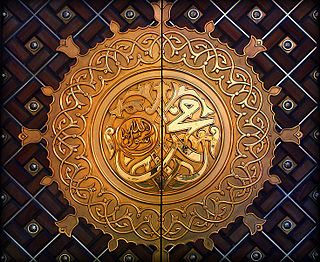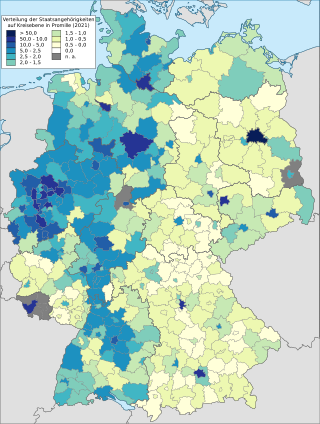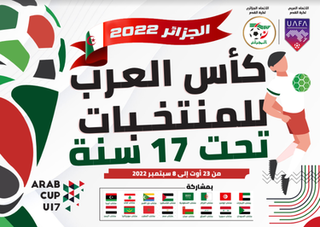Related Research Articles

The Free Officers were a group of revolutionary Egyptian nationalist officers in the Egyptian Armed Forces and Sudanese Armed Forces that instigated the Egyptian Revolution of 1952. Initially started as a small rebellion military cell under Abdel Moneim Abdel Raouf, which included Gamal Abdel Nasser, Hussein Hamouda, Khaled Mohieddin, Kamal el-Din Hussein, Salah Nasr, Abdel Hakim Amer, and Saad Tawfik, it operated as a clandestine movement of junior officers who were veterans of the Palestine War of 1948-1949 as well as earlier nationalist uprisings in Egypt in the 1940s. The nationally respected war hero Mohamed Naguib joined the Free Officers in 1949. Naguib's hero status, and influence within the army, granted the movement credibility, both within the military and the public at large. He became the official leader of the Free Officers during the turmoil leading up the revolution that toppled King Farouk in 1952.
Muneer is a masculine Arabic given name, it may refer to:
Arab Canadians come from all of the countries of the Arab world. According to the 2021 Census, there were 690,000 Canadians, or 1.9%, who claimed Arab ancestry. According to the 2011 census there were 380,620 Canadians who claimed full or partial ancestry from an Arabic-speaking country. The large majority of the Canadians of Arab origin population live in either Ontario or Quebec.
Anwar is the English transliteration of two Arabic names commonly used in the Arab world by both Arab Christians and Muslims: the male given name ʼAnwar (أنور), meaning "luminous" or the female given name ʼAnwār (أنوار), meaning "a collection of lights". In Arabic Anwar is also a comparative adjective with the meaning of "more enlightened".

The Arab Parliament is the legislative body of the Arab League. At the 19th Arab League Summit in Amman, the Arab states agreed to create an Arab Parliament, and came up with a resolution to give Amr Moussa the Secretary General of the Arab League the power to start and create the Parliament. In 2004, in the ordinary Arab League Summit in Algiers was the official date where all Arab League Members agreed to send their representative to the temporary Parliament sessions that took place in the headquarters of the Arab League in Cairo, Egypt, with each member state sending four members, until the Parliament is reassigned permanently to its under-construction office in Damascus.

Muhammad, also spelled Muhammed, Muhamad, Mohammad, Mohammed, Mahammad, Mohamad, Mohamed or in a variety of other ways, is an Arabic given male name meaning 'Praiseworthy'. The name comes from the passive participle of the Arabic verb ḥammada (حَمَّدَ), meaning 'to praise', which itself comes from the triconsonantal Semitic root Ḥ-M-D. Believed to be the most popular name in the world, by 2014 it was estimated to have been given to 150 million men and boys.
Abdelrahman or Abd al-Rahman or Abdul Rahman or Abdurrahman or Abdrrahman is a male Arabic Muslim given name, and in modern usage, surname. It is built from the Arabic words Abd, al- and Rahman. The name means "servant of the most gracious", ar-Rahman being one of the names of God in the Qur'an, which give rise to the Muslim theophoric names.
Moroccans in the Netherlands are Dutch citizens of Moroccan origin. They consist of immigrants from Morocco and their descendants, and form the second largest ethnic group in the Netherlands.

Sherif Nour is an Egyptian composer. Brought up in Cairo, Nour studied at composition at Helwan University. He has composed for various television, radio serials and films, including providing music for 270 episodes of the Egyptian cartoon Bakaar.
ʻAbd al-Karīm is a Muslim male given name and, in modern usage, also a surname. It is built from the Arabic words ʻabd and al-Karīm, one of the names of God in the Qur'an, which give rise to the Muslim theophoric names. It means "servant of the most Generous". It is rendered as Abdolkarim in Persian, Abdulkerim in Albania, Bosnia and Abdülkerim in Turkey.

Arab Germans, also referred to as German Arabs or Arabic Germans, are ethnic Arabs living in Germany. They form the second-largest predominantly Muslim immigrant group in Germany after the large Turkish German community.
Arabs in Austria are Austrians of Arab ethnic, particularly Lebanon, Syria, Palestinian, Iraq, Jordan and also small groups from Egypt, Algeria, Tunisia, Morocco, Libya, Yemen and Sudan, who emigrated from their native nations and currently reside in Austria. Most Arab Austrians are of Iraqis and Lebanese or Syrian origin, as a result of the fact that they were the first Arabs to arrive in Austria.
Arabs in Denmark are Danish permanent residents of Arab descent, who originate from Arab countries. The largest number of Arabs in the country are Iraqis. The majority hail from Lebanon, Syria, Iraq, Palestine, and Morocco followed by smaller groups from other Arab countries. They mainly live in Copenhagen, Aarhus and Jutland. There were 121,000 Arabs in Denmark as of 2017.
The Katara Prize for Arabic Novel is an Arabic literary prize based in Qatar. It was established in 2014 by the Katara Cultural Village. The total prize pool is $650,000 and the main prize $200,000, making it one of the richest literary prizes in the world. One of its sponsors is UNESCO. The winning novels will be translated into five languages - including French and English.
Berbers in the Netherlands are people of Berber descent living in the Netherlands. Berbers in the Netherlands are estimated to number 367,455 people and are mainly of Riffian-Berber descent.
Yassin, an alternative of Yasin, Yassine, Yaseen and Yacine, is a male given name. Common mostly in the Arab world and Muslim countries, Arabic: ياسين, IPA:[ˈjɑːsiːn]) is a surname and unisex given name of Arabic origin. The name comes from a chapter (surah) of the Quran called Ya-Sin. It is an epithet of the Islamic prophet Muhammad.

The 2022 Arab Cup U-17 is the fourth edition of the Arab Cup U-17, an association football tournament between Arab countries. It will be played from 23 August to 8 September 2022 in Algeria in Oran which represent the administrative organization of the tournament, and two other cities, Sig and Mostaganem which they holds each ones the football matches.
References
- ↑ "Population; sex, age, generation and migration background, 1 January". Centraal Bureau voor de Statistiek. 17 September 2021. Retrieved 5 February 2022.
- ↑ "We zijn de valse beloftes zat (We are fed up with false promises)", de Volkskrant, 2001-08-11, retrieved 2010-06-02
- ↑ "Arabische Nederlanders in actie tegen Al Jazeera (Arab Dutch defy Al Jazeera news coverage)", De Pers, 2007-11-22, archived from the original on 2011-09-30, retrieved 2010-06-02